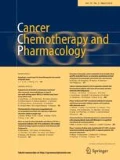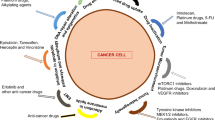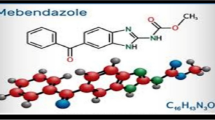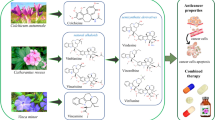Abstract
Purpose: We examined the pharmacology, cell biology and molecular biology of small-cell lung carcinoma cells treated with four extracts of Chinese herbal medicines. Many cancer patients take these medicines, but their effects at the cellular level are largely unknown. We were especially interested in the effects on drug-resistant cells, as resistance is a significant clinical problem in lung cancer. Methods: Drug-sensitive (H69), multidrug-resistant (H69VP) and normal lung epithelial cells (BEAS-2) were exposed to extracts from two plants used in Chinese herbal medicine for lung cancer: Glycorrhiza glabra (GLYC) and Olenandria diffusa (OLEN), and to extracts of two commercially available combinations of Chinese herbal medicines, SPES (15 herbs) and PC-SPES (8 herbs). Cytotoxicity was measured in terms of cell growth inhibition (IC50). The kinetics of DNA fragmentation after exposure to the herbal extracts was measured by BudR labeling followed by ELISA. Apoptosis was measured by the TUNEL assay followed by flow cytometry. Expression of apoptosis- and cell cycle-related genes was measured by reverse transcription of mRNA followed by filter hybridization to arrays of probes and detection by chemiluminescence. Results: In each case, the four herbal extracts were equally cytotoxic to H69 and H69VP and less cytotoxic to BEAS-2. All four extracts induced DNA fragmentation in the lung carcinoma cells. The kinetics showed DNA fragments released to the medium (an indication of necrosis) in GLYC-exposed cultures, but inside the cells (an indication of apoptosis) in OLEN-, SPES- and PC-SPES-exposed cultures. TUNEL analysis confirmed that exposure to the latter three extracts, but not to GLYC, led to apoptosis. Compared to untreated and GLYC-treated cells, H69 and H69VP cells treated with OLEN, SPES and PC-SPES showed elevated expression of a number of genes involved in the apoptotic cascade, similar to cells treated with etoposide and vincristine. Conclusion: The Chinese herbal medicine extracts OLEN, SPES and PC-SPES are cytotoxic to both drug-resistant and drug-sensitive lung cancer cells, show some tumor cell specificity compared to their effect on normal cells, and are proapoptotic as measured by DNA breaks and gene expression. The reaction of the tumor cells to these extracts was similar to their reaction to conventional chemotherapeutic drugs.
Similar content being viewed by others
Author information
Authors and Affiliations
Additional information
Electronic Publication
Rights and permissions
About this article
Cite this article
Sadava, D., Ahn, J., Zhan, M. et al. Effects of four Chinese herbal extracts on drug-sensitive and multidrug-resistant small-cell lung carcinoma cells. Cancer Chemother Pharmacol 49, 261–266 (2002). https://doi.org/10.1007/s00280-002-0427-5
Received:
Accepted:
Issue Date:
DOI: https://doi.org/10.1007/s00280-002-0427-5




